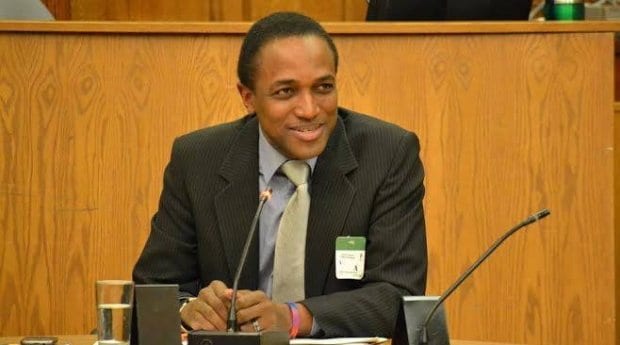Maurice Tomlinson’s case speaks to how the legal situation for LGBT people is — slowly — shifting in the Caribbean. At best, the court could rule that the states must restrict their gay travel bans to non-Caribbean Community (CARICOM) nationals. But even that win would be a major milestone in a region where 11 states still criminalize gay sex, and where anti-gay discrimination and violence is rampant.
A sprawling, culturally and racially diverse chain of islands, the Caribbean is home to 40 million people living in more than 30 different political entities. While islands that were colonized by other European powers have no anti-gay laws, former British colonies each inherited criminal codes that explicitly criminalize male gay sex, with punishments ranging from 10 years to life in prison. Only The Bahamas have repealed their anti-sodomy law. About six million people live in the other 11 former UK colonies.
Caribbean states are at least nominally committed to pluralism, democracy and human rights in constitutions that take inspiration from those of Canada and the United States. And yet those same constitutions have traps for LGBT activists. Colonial-era criminal laws, including sodomy laws, are protected from constitutional challenges, and human rights laws are drafted narrowly so as to prevent judges from “reading in” protected classes of individuals in the way that Canadian and American judges have found unwritten protections for LGBT people.
Against this backdrop, primarily US-based Evangelical Christian organizations have been active, preaching that homosexuals are deviant and dangerous, and fomenting opposition to any expansion of LGBT rights. Opinion polls in Jamaica now regularly show more than 90 percent of people say they are opposed to homosexuality.
Despite the obstacles, Tomlinson is beating a path for LGBT rights through the region’s courts. He breathlessly lists a half-dozen other cases he’s pursuing now: a challenge to Belize’s anti-sodomy law; a challenge to Guyana’s anti-crossdressing law; three cases challenging Jamaica’s anti-sodomy law including two at the Inter-American Court of Human Rights; and a lawsuit against two Jamaican TV stations that censored an LGBT-rights commercial he wanted to air.
Legal infrastructure in the Caribbean is limited and most former British colonies lack their own Supreme Courts — final appeals are sent to the Privy Council in London. The CCJ is meant to replace the Privy Council for these states eventually.
All these disparate efforts are slowly paying off, Tomlinson says. A handful of Pride events have taken place over the years in Suriname and The Bahamas, and queer people are gradually becoming more visible throughout the region. In 2011, new prime ministers were swept to power in Jamaica and Trinidad and Tobago after promising to consider repealing anti-gay laws, and although they haven’t followed through, they proved that talking about LGBT rights is not political suicide.
And the once-defunct regional group Caribbean Forum for Liberation and Acceptance of Genders and Sexualities (CariFLAGS) has relaunched with new funding and a new administrative structure that’s starting to show results, although Tomlinson is staying apart from it, comparing his work and theirs to that of Malcolm X and Martin Luther King.
“Because [CariFLAGS’ staff] live in the region, there’s more of an interest in an appeasement approach, I suspect because the [backlash] would be more immediate on them. I can imagine what that would mean, because I’ve experienced it. But I have a constituency that has been more impacted I think, because they’re either homeless or whatever, and these people want immediate relief, and so the patience isn’t there,” he says. “It is best for us to proceed on parallel tracks. They’re good administrative activists and we need that.”
It’s the kind of fissure that’s common in any LGBT movement, and not something activists are terribly worried about. Because of the efforts of people like Tomlinson and other regional activists, LGBT people are beginning to win real victories towards achieving the post-independence dream of freedom, equality and security for all people of the Caribbean.
<Previous: Canadian man fights anti-gay laws in Caribbean court


 Why you can trust Xtra
Why you can trust Xtra


